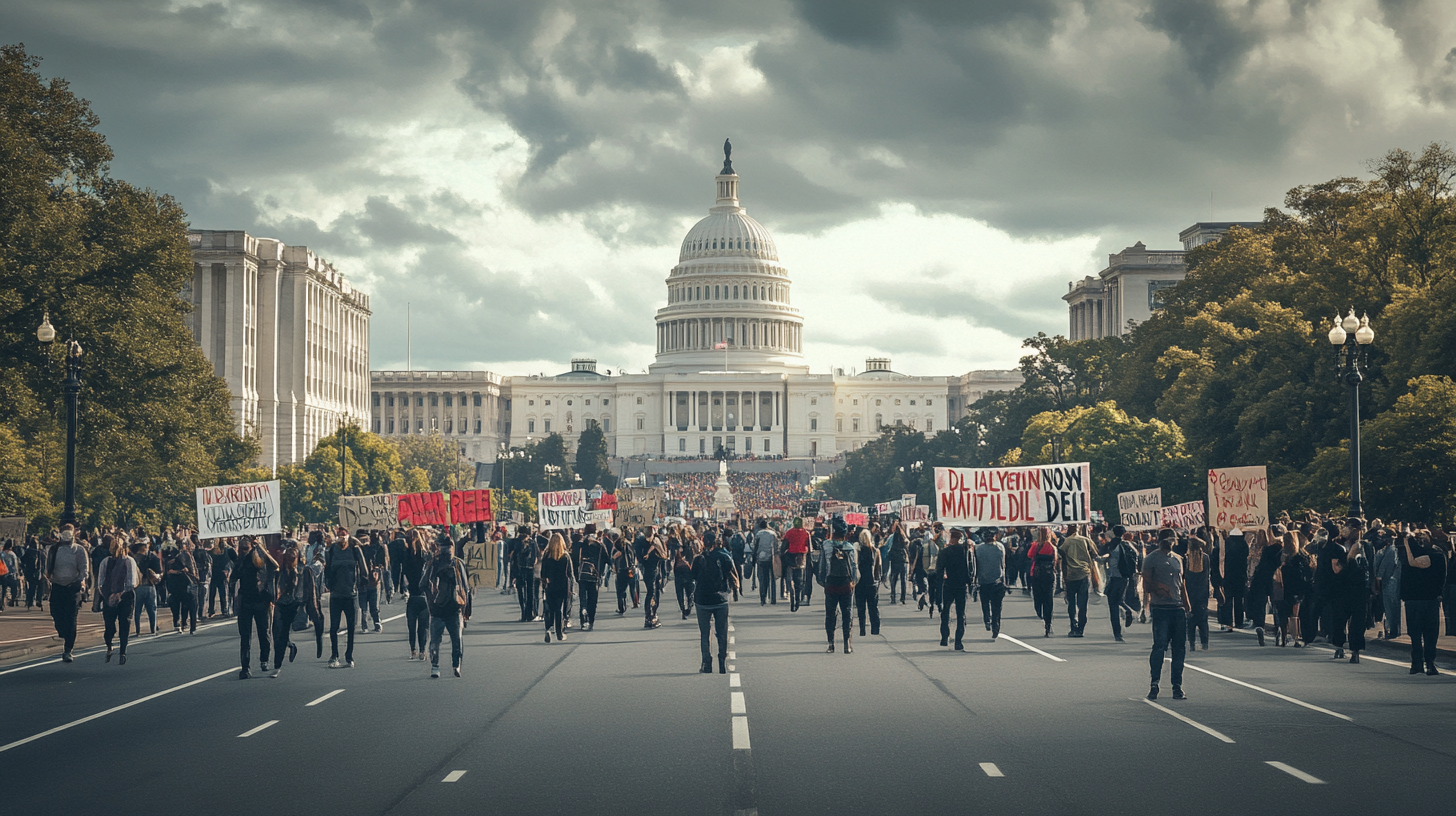Justice Department Poised to Challenge Diversity Programs Amid Rising Tensions
In what may shape up to be a significant shift in domestic policy, the incoming Donald Trump administration is expected to mount a coordinated attack on Diversity, Equity, and Inclusion (DEI) programs across the United States. This anticipated move, described by some as the hallmark of “the most virulent anti-DEI administration,” stands to impact educational institutions and corporations profoundly, as the administration plans to leverage the Department of Justice’s Civil Rights Division to spearhead these challenges.
Background: A Prelude to the Battle
Walmart’s recent retraction of its DEI initiatives, following legal threats from conservative groups, has underlined what many fear to be a precursor to broader challenges against DEI. The retail giant’s decision mirrors a growing wave of opposition, with Trump’s potential second term promising to dismantle initiatives targeting “race and sex stereotyping.”
The foundation for this potential battle lies in Project 2025, a controversial policy outline criticized for its harsh stance against what it terms “woke culture.” The plan advocates for using federal resources to dismantle such programs, igniting concerns among DEI proponents and sparking a conversation about the future of inclusivity in America.
The Legal Arsenal: Title VI and Previous Battles
Central to these challenges is Title VI of the 1964 Civil Rights Act, which prohibits racial discrimination in federally funded programs. Historically a tool used to support DEI efforts, the Act could see a reinterpretation under Trump to argue against perceived reverse discrimination. Notably, the previous administration’s lawsuit against Yale University over its admissions policies reflects this strategy’s potential re-emergence.
Conservative factions are similarly pursuing private sector DEI initiatives, taking legal action against corporations like Meta and Amazon. Although some suits have faced dismissal, these efforts underscore a broader and more concerted push against diversity practices within corporate America.
Voices from the Frontline: Advocates Speak Out
Proponents of DEI policies emphasize their critical role in addressing historical inequities and fostering inclusive environments. Amalea Smirniotopoulos, a senior policy counsel at the NAACP Legal Defense Fund, recently stated, “At the heart of these attacks is an attempt to hoard opportunity for a limited group of people.”
Experts warn that federal resistance could have a chilling effect on institutions, leading many to curtail DEI programs preemptively, even in regions without restrictive laws. Leah Watson from the ACLU highlighted these fears, noting, “We see conservatives misrepresenting the status of the law, furthering the chilling effect. Overcorrections are happening, and things are being cut that don’t have to be cut.”
Local Implications: The Community Impact
The ramifications of these federal maneuvers could ripple through local communities, affecting how diversity is approached within educational systems and workplaces. Institutions might face renewed scrutiny or backlash, potentially stalling progress made on inclusivity in regions like the US South.
David Glasgow, executive director of the Meltzer Center for Diversity, Inclusion, and Belonging, forewarned that Trump’s presidency might be unprecedentedly antagonistic to DEI. Local entities, particularly universities in diverse localities, may need to prepare for increased legal challenges and potential policy revisions.
Historical Context and Community Resilience
Throughout history, the US has witnessed cycles of progress and pushback in civil rights and inclusivity efforts. As the country stands on the brink of what some perceive as a regression, it’s essential to acknowledge both the work already accomplished and the resolve needed to continue advancing DEI goals.
In communities outspoken on issues of equality, such as those with substantial minority populations, the potential rollback of inclusion programs could spark significant activism and dialogue. This situation calls for heightened awareness and active participation from residents, ensuring that the values of equity remain at the forefront.
The Road Ahead: Future Considerations
Moving forward, it remains crucial for public forums and discussions to deliberate these issues at a community level. Local governments, educational institutions, and private sector stakeholders will need to collaborate against a backdrop of uncertainty, ensuring transparency and shared commitment to diversity.
For communities seeking to buttress their DEI efforts, drawing upon local resources and allied organizations might prove invaluable. Maintaining communication channels between advocates, policymakers, and residents can aid in forming resilient defenses against potential federal policies perceived as detrimental.
Resources and Advocacy Channels
Residents and community leaders interested in understanding the potential impacts of these federal policy directions can attend local town halls or participate in online webinars scheduled by advocacy groups and educational institutions. Further support could be sought from diversity advocacy organizations, such as the NAACP Legal Defense Fund, which offer guidance and tools for navigating these challenging landscapes.
By addressing these challenges armed with awareness and resolve, communities across the nation can continue striving toward equitable futures, regardless of shifts in political climates. In embracing diversity, America’s foundational promise of equality finds renewed realization in every struggle surmounted.







